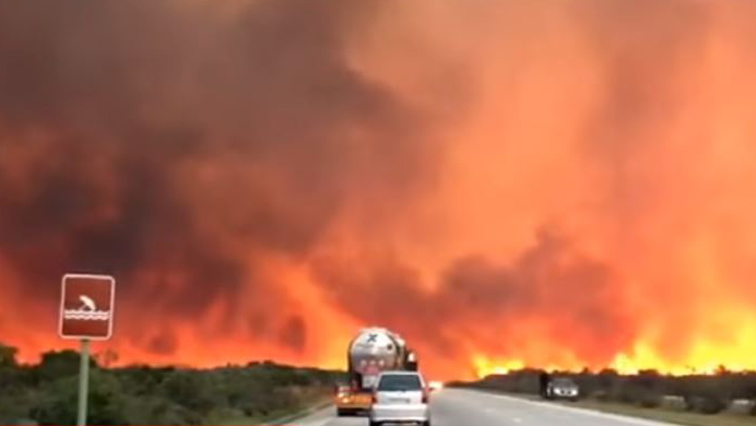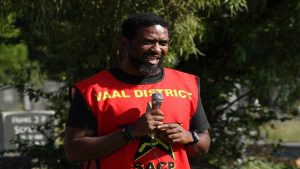The Western Cape is facing a daunting fire season with the effects of global warming impacting on the size and intensity of fires. The Cape Winelands District launched its Fire Season Preparedness programme on Friday.
As the largest in the province, the district spans more 23 000 square kilometres of mountainous fynbos, a rich area increasing the risk of runaway fires.
The event started with a prayer for protection, bravery and commitment. As the fire season kicks off, each fire fighter knows what lies ahead.
In major fires like the one in George, crews can work for days without rest in extreme heat and difficult terrain.
“We’ve seen it in the past two fire seasons, if we take George and Knysna for an example, we referred to them as Mega fires, it takes a lot of resources, it consumes a lot of fuel, and it causes extensive damage to the economy in those specific areas. The fire seasons from our experience are getting longer, in the past we had a short fire season. It is now been extended with a couple of months,” says Western Cape Deputy Director for Fire Brigade Services, Etienne Du Toit
Fire fighting capacity will have to be increased as the fire seasons tend to be longer by several months than in the past. Only an elite group of people are selected for the rigorous physical and international qualifications training to become a fire fighter.
The Cape Winelands is a major training hub. “First up any fire fighter must be physically fit so when we do our recruitment and selection the rigid stuff we look for obviously a fire fighter must be at least 80 kilograms, he must be at least 1. 75 metres and we also do a reach test so he must actually reach one point nine metres in the air and he must be physically strong,” says Chief of Training, Heinrich Louw.
A vital component is the arial surveillance and water bombing. It is a dangerous job under very trying circumstances.
“We are passionate about what we do and that’s putting out fires so I think we are prepared to take that risk but we don’t think about not coming home at night but that’s not the thought that crosses our mind we plan on coming home,” says Fire Fighting Helicopter Pilot, James Cregeen
The death toll from the fire in George has increased to nine highlighting the devastation fires can cause. However the men and women of fire services are ready to do what they must for as long as needed to save and protect all they can.






